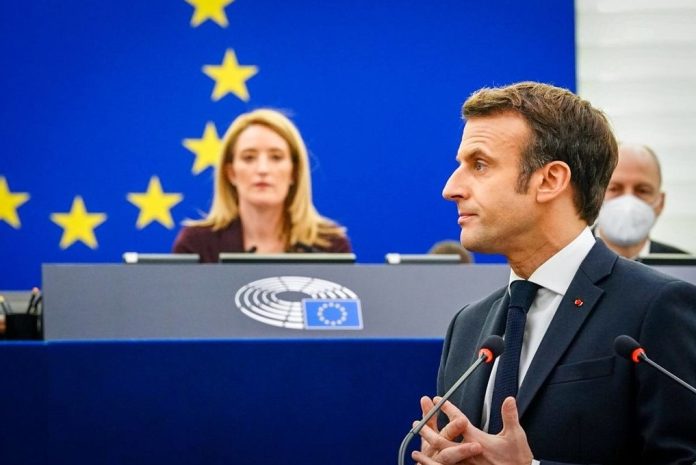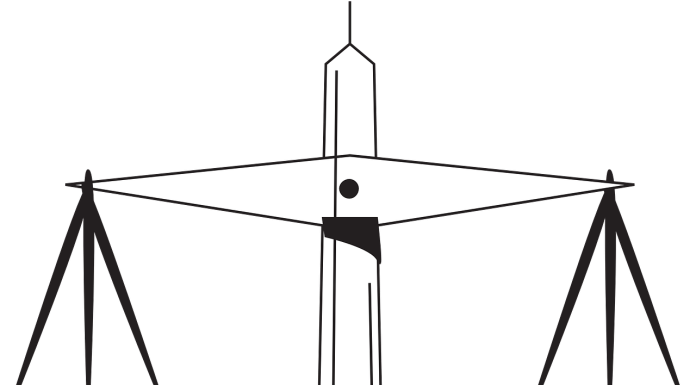
By Miguel Nunes Silva, Director of Portugese think tank Trezeno Institute
When Emmanuel Macron was first elected President of France in 2017, the Hexagon was already in deep trouble: 100% GDP to public debt ratio, enormous social strife as a result of decades of mass immigration from the developing world, and a sclerotic public administration apparatus refusing deep reforms as well as a society deeply zealous of welfare entitlements it can ill afford to maintain in the 21st century.
Macron emerged as the most palatable candidate for the French because his neoliberal vision reassured the Right of future economic reforms and his European credentials reassured the Left of a humane approach to minorities and financial goodwill from the EU institutions.
6 years later, France’s internal crisis has only deepened. Macron failed at substantively reforming the nation and he must now add the loss of influence in the Sahel, to Paris’s list of troubles.
Macron however, seems to possess a certain proclivity for megalomania which has led him to always dream bigger than what he and France could actually afford to achieve. In 2023 France came to a halt with widespread strikes against the Elysée’s plans for pensions reform. This was a politically ill conceived move following his reelection with dismal numbers: before defeating Europe’s bête noire Marine Le Pen with massive media support in a second round, Macron had obtained a measly 28% in the election’s first round of voting.
Simultaneously, he decided to not recognise a putschist government in Niger, eventually leading to the complete expulsion of French forces and a breakdown in relations between the two states, as well as significant hostility from neighbours Mali and Burkina Faso.
How France's Macron went from a successful political newcomer to a weakened leader https://t.co/BnWMDAwMEv
— The Associated Press (@AP) July 6, 2024
Summer Olympics
It is in this context that France must now organise 2024’s Summer Olympics, a bid which the Macron government secured soon after assuming office.
Once again, it appears Emmanuel Macron bit off more than he could chew as the upcoming pageant is mired in political and security issues. Past editions have tragically featured terrorism related to the Israelo-Palestinian conflict and at the height of Israel’s intervention in Gaza, tensions are running high. In addition, the French President is now arriving at the Olympics further weakened by a defeat to his right-wing rival Marine Le Pen in the European elections. This could prove important if Macron were put in a position to clamp down on a riot. Macron has persistently overestimated his political capital and the Olympics may require even more of it.
Indeed the overall security situation in France is abysmal. Whereas certain authoritarian regimes can guarantee security for such undertakings, Western Europe has been at the epicentre of both mass immigration and islamic related terrorism and riots. France stands at number 4 in the violence ranking for Europe, only behind countries at war like Russia, Ukraine and Belarus. According to the Global Peace Index, were it not for the war in Ukraine and …Paris might very well be at #1.
🇫🇷 Unrest and violence broke out in France after the leftwing New Popular Front won 182 seats, blocking Marine Le Pen’s National Rally.https://t.co/TdIjwuAGqQ pic.twitter.com/W1K30vITiv
— Ground News (@Ground_app) July 8, 2024
Just recently, Israelis at the Eurovision song contest were widely harassed by muslims in Sweden. Anyone care to guess how safe France will be for jews?
In general terms, the problem goes even beyond Macron. France’s southern policy articulated via the EU should have been Paris’s competitive advantage but just as the East isn’t going well, so too France appears to be more embarrassed by its meridional forays, these days, than empowered by them.
The Macron government may have met failure in the Sahel but it was the Quai d’Orsay and the Parisian intelligentsia that were the main promoters of NATO’s intervention in Libya; over a decade later, the North African territory is still mired in chaos. This in turn has allowed terrorism, slavery and illegal immigration to fester. If Angela Merkel bore the brunt of the blame for the immigration policy catastrophe that was the welcoming of illegal migrants ten years ago, then Nicolas Sarkozy is to blame for the operational cause of the crisis which was triggered by the ousting of Muammar Gaddafi.
The “Mediterranean Union”
Sarkozy was also the promoter of the Mediterranean Union which was meant to facilitate cooperation between both strands of the inner sea. Nevertheless, several years later, and in spite of EU funding of development projects in the south, the initiative seems to have completely stalled: Syria is suspended and this has led to souring relations between the EU and the Arab League, Turkey is at loggerheads with both Greece and Israel, Morocco has broken ties with Algeria and even intermittently with the EU itself, Tunisia is still reeling from the Arab Spring and veering towards authoritarianism, and Italy’s own impulse to find a collective solution to the immigration crisis has produced no results. The EU’s mediterranean partners do not comply with its values, do not favour the EU in trade, show little concern with stamping the migration flows and often vote against the EU in the UN and other international fora. Is there any discernible productive outcome to have been had by the money coming from Brussels?
Speaking of costs, current estimates point to an almost doubling of the Olympic Games costs to almost €9 billion, against a backdrop of 110% debt to GDP ratio. A drop in the bucket but one that keeps filling.
After the adverse results of the recent European Parliament elections, the Macron cabinet decided to call for early legislative elections which resulted in the victory of the far Left. Given that no political force has a clear majority, this spells instability and economic mismanagement for the near future.
France is a wealthy nation surrounded by wealthy neighbours but its disastrous policies have considerably mortgaged its future and degraded the living conditions of its citizens. Organising something as ostentatious as the Olympics in its current state is a gamble and an escape forward. Will it pay off?
Absolutely A+ explanation of Macron's unpopularity from an adviserhttps://t.co/psHJbj4JUB pic.twitter.com/upEZ9BonFQ
— dylan matthews 🔸 (@dylanmatt) July 8, 2024
Disclaimer: www.BrusselsReport.eu will under no circumstance be held legally responsible or liable for the content of any article appearing on the website, as only the author of an article is legally responsible for that, also in accordance with the terms of use.












